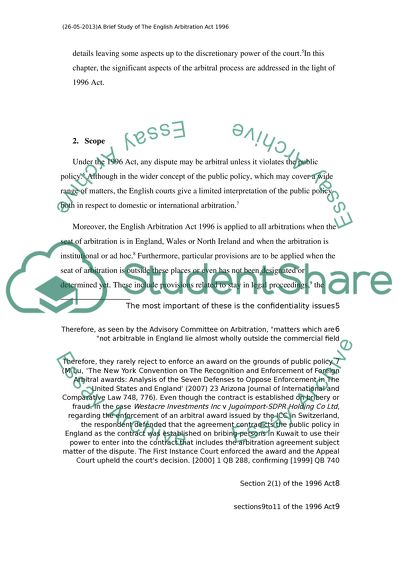Cite this document
(“English Arbitration Act 1996 Essay Example | Topics and Well Written Essays - 5000 words”, n.d.)
English Arbitration Act 1996 Essay Example | Topics and Well Written Essays - 5000 words. Retrieved from https://studentshare.org/law/1479497-a-brief-study-of-english-arbitration-act
English Arbitration Act 1996 Essay Example | Topics and Well Written Essays - 5000 words. Retrieved from https://studentshare.org/law/1479497-a-brief-study-of-english-arbitration-act
(English Arbitration Act 1996 Essay Example | Topics and Well Written Essays - 5000 Words)
English Arbitration Act 1996 Essay Example | Topics and Well Written Essays - 5000 Words. https://studentshare.org/law/1479497-a-brief-study-of-english-arbitration-act.
English Arbitration Act 1996 Essay Example | Topics and Well Written Essays - 5000 Words. https://studentshare.org/law/1479497-a-brief-study-of-english-arbitration-act.
“English Arbitration Act 1996 Essay Example | Topics and Well Written Essays - 5000 Words”, n.d. https://studentshare.org/law/1479497-a-brief-study-of-english-arbitration-act.


